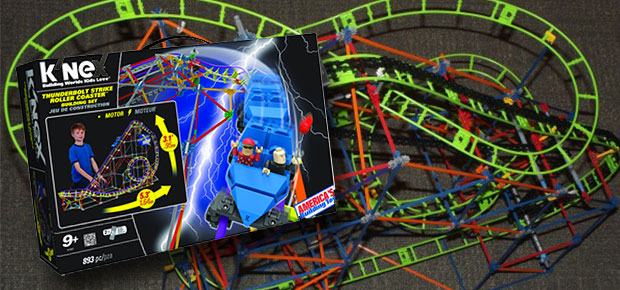


Instruction Manuals (zip file of multiple pdfs - 58mb) »
The K'NEX® Education Roller Coaster Physics Set is designed to help students as they learn how to design and conduct scientific investigations, identify variables of the problem and select appropriate independent and dependent variables for investigations. They will determine the steps necessary to control a variable, observe and record the response, and interpret the results. They will measure, record, and analyze the data for patterns, construct scatter plots or histograms as a graphic representation of the data, and mathematically interpret those graphs.
This roller coaster set brings physics to life. The set allows students to investigate physics concepts in simple systems, prior to the investigation and application of these concepts in the complex roller coaster system
The Teacher's Guide offers ideas, in the form of nine lab exercises, that outline ways in which students may use the set to study physics, and mechanics. The studies adopt a hands-on, student-inquiry based approach in which the teacher is encouraged to develop each lab investigation using the 5E model (Engage, Explore, Explain, Extend, and Evaluate) of inquiry while students utilize the Four Question Strategy for experiment design.
Please email thestemhub@canterbury.ac.uk to find out more and to book this free resource.